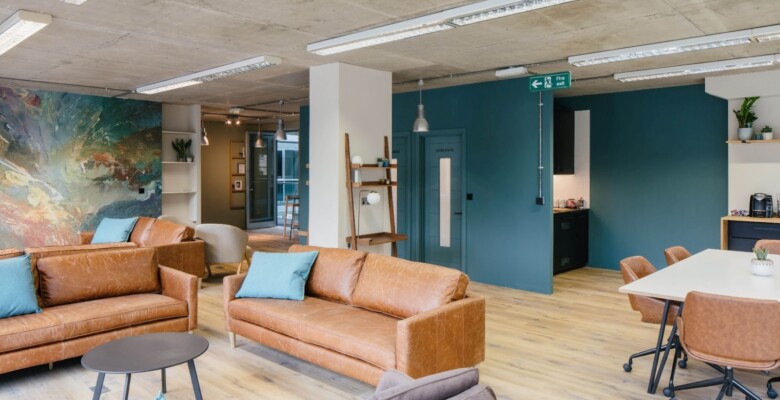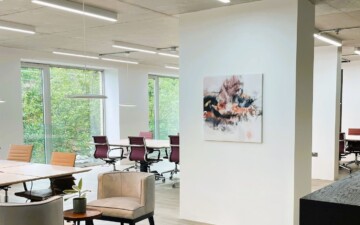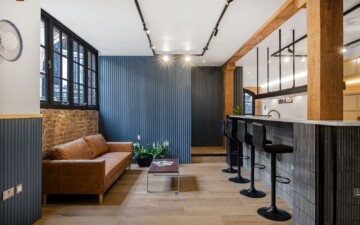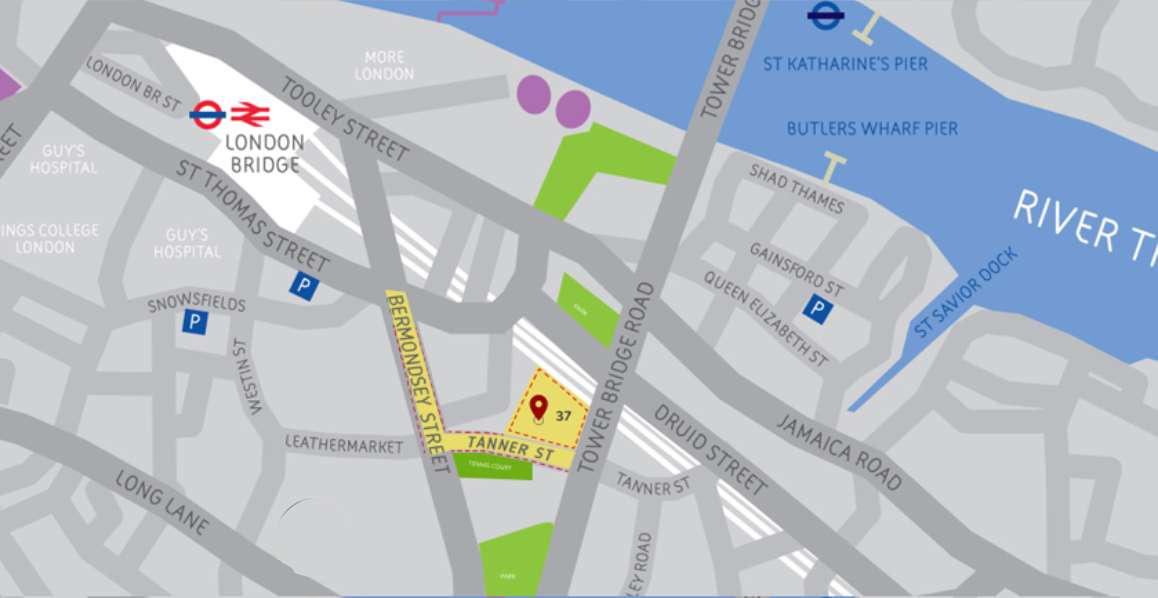The traditional office model is a thing of the past. According to a study, 94% of employees believe they would work better if they had greater work flexibility in their work environment. Employees today value the ability to choose how and where they work. When you offer flexible offices, you let your employees take an active role in shaping their workspace.
Traditional offices confine employees to rigid structures, this could stifle their creativity and productivity. Flexible spaces break free from these limitations by creating a dynamic environment that caters to changing work styles and preferences. Flexible office space provides employees the autonomy to choose their work environment.
Flexible offices can translate to a 40% increase in high performers, who, fueled by flexibility and support, drive your business strategy forward. With a happier, more productive workforce, you gain the freedom to focus on strategic growth.
In this article, we explore why flexible offices create a stronger business strategy and how you can harness this advantage to boost productivity, adapt to market changes, and contribute to sustainable growth.
What is a Flexible Office?
A flexible office is a space where employees can choose where and how they want to work. Unlike a traditional office space where employees are confined to pre-assigned seats, in a flexible office they have the freedom to move around, switch seats, and work from different rooms.
Flexible offices typically use some of these elements to make their spaces more malleable to how employees wish to work at a specific time:
- Hot desks, which are unassigned seats available on a first-come-first-serve seats
- Dedicated seats are assigned for employees who want to work from a consistent workspace
- Private offices, which are closed spaces employees can book
- Meeting rooms designated for collaborative work
- Work lounges with comfortable, movable seating for individual work, informal meetings, etc.
- Huddle rooms which are small, informal meeting spaces for quick discussions
- Outdoor spaces, wellness rooms, and fitness rooms are also elements some flexible offices offer.
Why Flexible Offices Create a Stronger Business Strategy: 5 Reasons
Flexible offices are transforming the way we work, bringing energy and adaptability to the workplace. This style of working boosts employee satisfaction and strengthens your overall business strategy. Let’s explore how flexible offices offer financial, operational, employee-centric, and innovation-based benefits that can propel your business forward.
1. Agility, Scalability, and Cost-Effectiveness
Agility drives the business landscape today. Flexible office spaces allow you to scale your operations up or down. Whether you need to accommodate a sudden influx of new hires or downsize due to market shifts, flexible offices make it easy.
From a financial perspective, this scalability translates to cost savings. You’re not tied to a fixed space that may become too large or too small for your needs. Instead, you pay for the space you use, optimising your overhead costs. This financial flexibility frees up resources that you can invest back into core business activities.
Operationally, flexible offices in shared workspaces reduce the burden of facility management. Services like cleaning, maintenance, and security are often included so you can focus on strategic objectives rather than day-to-day operational hassles.
2. Cross-Team Collaboration
A flexible office layout encourages employees from different departments to interact organically. When teams are not siloed in separate areas, ideas can flow more freely. You might find your marketing team brainstorming with product developers over coffee or your sales staff sharing customer insights with the design team.
This free flow of ideas supports innovation and can lead to unique products or services. It also helps identify and solve problems more efficiently as diverse perspectives are brought together.
3. Employee Engagement and Retention
Attracting and retaining top talent is a challenge for many businesses. A flexible office environment can be a game-changer. Employees value work environments that offer flexibility, autonomy, plus a sense of community. By allowing employees to choose where and how they work, you are demonstrating trust and respect for their individual work styles. This empowerment leads to greater job satisfaction and engagement. Engaged employees are more productive, provide better customer service, and are more likely to stay with a company longer.
When prospective employees see that you offer a modern, flexible workspace, it enhances your employer brand. Top talent is drawn to companies that invest in employee well-being.
4. Productivity and Focus
Different tasks require different environments. Flexible offices can provide quiet zones for deep focus, collaborative spaces for team projects, and casual areas for informal discussions. Employees can be more productive by customising the workspace to the task.
For example, if an employee needs to concentrate on a complex report, they can move to a quiet area free from distractions. This adaptability ensures that employees have the choice of an optimal environment for a task, leading to better quality work and faster completion times.
5. Focus on Core Business Objectives
With flexible offices in shared workspaces, administrative burdens like facility management are often handled by the office provider. This outsourcing allows you to concentrate on running your business. You do not have to worry about negotiating utility contracts, handling repairs, or managing cleaning services. Instead, your time and energy can be directed toward strategic planning, market expansion, or improving customer relationships.
You can also read :
https://go-bermondsey.co.uk/blog/office-trends/
Best Practices to Make the Most of a Flexible Office Space
Transitioning to a flexible office space is a change that requires thoughtful implementation. Here are some best practices to ensure you and your team reap all the benefits.
1. Prioritise Employee Choice
Your employees should be the focus when moving to a flexible office. Encourage them to choose workspaces that suit their tasks and personal work styles. Solicit their feedback on the types of spaces they need, be it more quiet zones, collaborative areas, or relaxation spots.
2. Invest in Technology
A flexible workspace requires technology to function smoothly. Equip your office with reliable Wi-Fi, cloud-based collaboration tools, and secure access to company resources. You can also consider implementing booking systems for shared spaces or equipment to prevent conflicts.
3. Create a Sense of Community
As employees start working more closely, they should feel like they are a part of a community. Organise regular social events, team-building activities, or workshops that bring employees together.
4. Activity-Based Working
Implementing an activity-based working model means designing your office space to support various activities—focus work, collaboration, learning, and socialising. Clearly define these zones and communicate their purposes to your team. This approach ensures that employees have the right environment for each task.
5. Adapt the Space Regularly
A flexible office must evolve with your company’s needs. Regularly assess how the space is being used and make changes. Some changes may include reconfiguring layouts, adding new technology, or creating different types of work areas.
Final Thoughts
Flexible offices are the future of work, and embracing them is a strategic move that positions your business for growth. By supporting employee engagement, productivity, and collaboration, these dynamic spaces drive innovation and success. The adaptability and employee-centric design of flexible offices can empower your team to thrive, driving your business towards its goals and beyond.
If you’re searching for a flexible office space that fuels growth and empowers your team, look no further than GO – Garden Office Bermondsey. Our private office spaces are designed to inspire productivity and collaboration and are equipped with essential amenities like high-speed Wi-Fi, printing facilities, meeting rooms, and dedicated reception services. At GO – Garden Office Bermondsey, we understand that your business needs are unique. Which is why we offer you the flexibility to scale your workspace up or down as required, ensuring you have the perfect environment to thrive. Whether you need a private office space, a collaborative workspace, or a meeting room, we have you covered.
Ready to experience GO – Garden Office Bermondsey’s workspaces? Book a visit to our office today!





